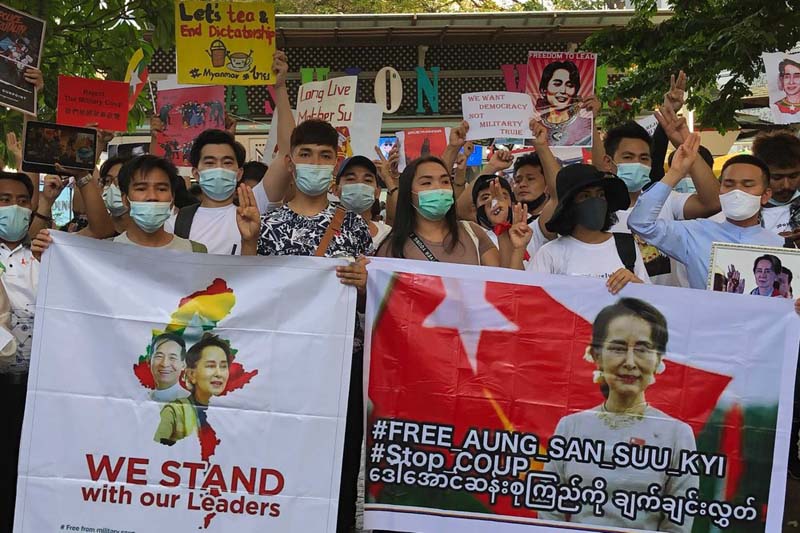

A new faction of Thailand’s pro-democracy movement staged a protest march on Sunday, linking their cause with that of demonstrators in Myanmar battling that neighbouring country’s coup-installed military government.
Marchers sought but failed to go to Thai Prime Minister Prayuth Chan-ocha’s house, which is on an army base in Bangkok. Shipping containers were situated to block them, and police using water cannons, rubber bullets and tear gas barred the way.
The demonstrators abandoned their plan several hours later after taking an online vote of their supporters.
Police said a 41-year-old officer died in the tumult, with local media reported he had a heart attack. According to the Erawan EMS center, 23 policemen and 10 protesters were injured.
Thai pro-democracy demonstrations have recently become marred by increasing violence. Much of it has been initiated by particularly confrontational protesters using tactics including throwing small homemade ‘ping-pong’ bombs with the power of big firecrackers at police, who sometimes react with disproportionate force.
Sunday’s action was linked to the informal Milk Tea Alliance of pro-democracy activists from Hong Kong, Taiwan, Thailand and Myanmar, which called for efforts Sunday online and in real life in support of the protests in Myanmar.
In Myanmar on Sunday, a crackdown on protesters by security forces left at least 18 people dead, according to the UN Human Rights Office.
Prayuth was targeted in part because he met Wednesday in Bangkok with the new foreign minister appointed by Myanmar’s junta.
The protest in Bangkok was the first to be led by a new group calling itself REDEM, short for Restart Democracy, whose self-proclaimed goals are to build democratic socialism and minimise political and economic inequality.
REDEM was launched last week as an offshoot of Free Youth, one of the main groups that began rallying against the Thai government last year.
Last year’s original protest coalition campaigned for Prayuth and his government to step down, the constitution to be amended to make it more democratic and the monarchy reformed to make it more accountable.
The demand about the monarchy is the most controversial, because the institution has been widely considered an untouchable, bedrock element of Thai nationalism.
The protest movement lost steam when it took a break in December and January as Thailand was hit by a second wave of coronavirus infections. It is now trying to reinvigorate itself but has been hampered by the recent jailing of some of its leaders who are pending trial on several charges, including defaming the monarchy.